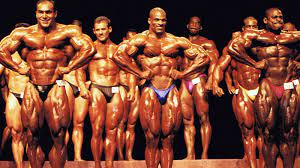
Did you know that when you look up synonyms for the word ‘athletic’ it suggests; ‘frail, weak, infirm, delicate’.
Antonyms include, ‘muscly, well built, strong, fit, healthy’ and… ‘able-bodied’..
As if to suggest that disabled people could not also be athletic or hyperable at the same time, that they are mutually exclusive. Of course we know this not to be true but we rarely see examples of this in mainstream media, unless it is for inspiration porn.
This is why I have chosen to use the term, ‘hyperable’ instead of the word ‘athletic’. Too often this body type is considered the norm, the average or what is considered ‘healthy’ in our Western society and media. Everyone else’s experiences of their body, who don’t fit into this category, are somehow deemed less than. I want to highlight, through the language and terminology that I use, that all body types are of course valid and that being athletic or hyperable is a choice to push your body into a form that is in most cases, beyond what is necessary to survive. You have made yourself, in some way, ‘hyper-able.’
Bodies are more complicated than the binaries of athletic or weak, fast or slow, healthy or unhealthy. They are soft and leaky, strong and vulnerable, uncooperative and reliably inconsistent. They contain emotions and memories. We can adorn them with the symbols of who we are and connect with ourselves and others through them. Where are the celebratory arena sized events for these bodies? The non-normative normal bodies.
Besides, the word athlete comes from ancient Greek words that mean, ‘one who competes for a prize’ so in some sense we can all be athletes if we really want to be. I won a goldfish on the fair once.